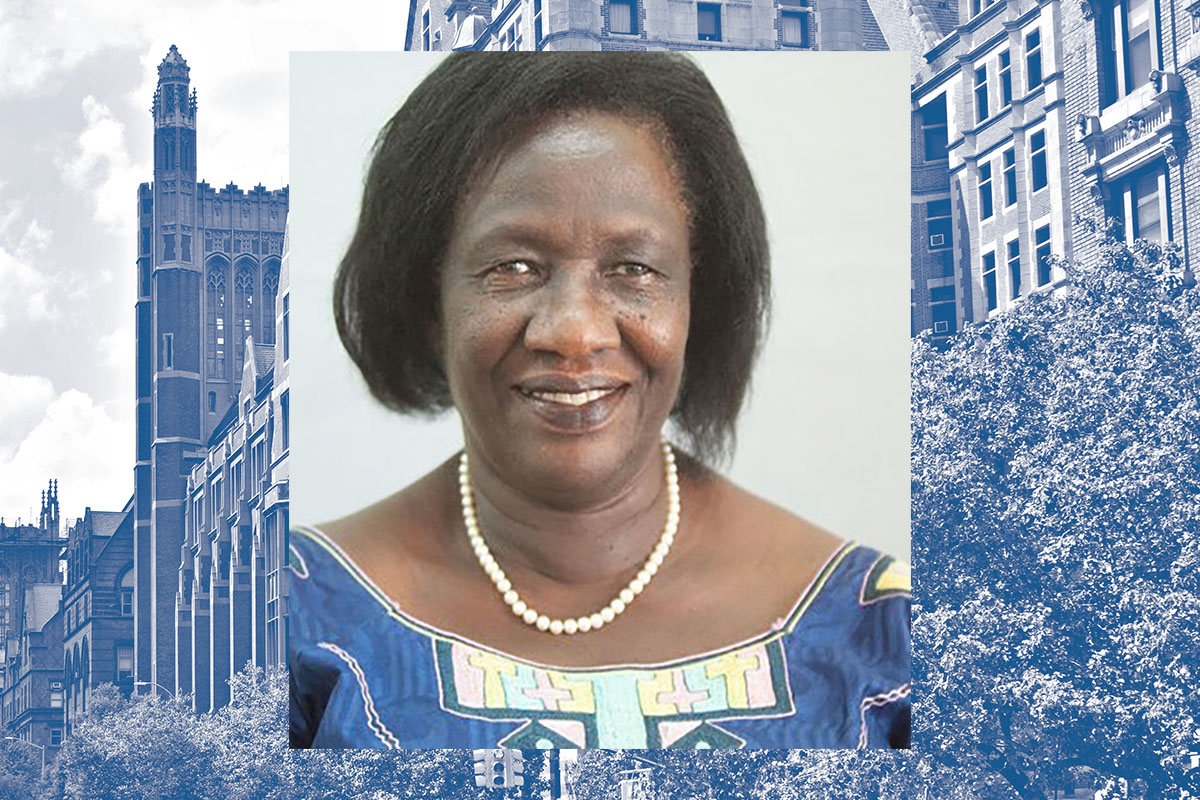Margaret Phiri was four years into a career as a bedside nurse-midwife in Malawi when she recognized education as her true calling.
“I like explaining things,” says Phiri (M.Ed. ’91), who currently serves as Nursing and Midwifery Advisor for Seed Global Health, Malawi, a non-profit that helps provide nursing, midwifery and medical training support in resource-limited countries. “I like helping people become better people. And teaching is all about sharing information to help people.”
But Phiri was also doing the math. A nurse-midwife can care for only so many patients, she reasoned, while nurse executives and educators shape the thinking of countless nurses and midwives who go on to improve patient care across networks of hospitals and clinics.
I like explaining things. I like helping people become better people. And teaching is all about sharing information to help people.
— Margaret Phiri (M.Ed. ’91), Nursing and Midwifery Advisor, Seed Global Health, Malawi and a graduate of TC’s Executive Program for Nurses
“I thought I’d have a greater impact by becoming a teacher,” she says.
Phiri has since quietly, but persistently, put her imprimatur on the delivery of health services in developing nations throughout East, Central and Southern Africa and in WHO/AFRO Member States — work that in December 2020 prompted Women in Global Health, a non-profit organization dedicated to gender equality in global health leadership, to name her to its worldwide list of “100-plus Outstanding Women Nurses and Midwives.”
In the estimation of many, it was an honor that was long overdue.
“Margaret is quiet on the outside, but very robust on the inside in terms of what she sees and perceives and in what she’s done,” says Elaine Rigolosi, Professor of Education and Director of Teachers College’s Executive Program for Nurses, from which Phiri graduated. “She may be quiet. But this is not a person who sees quietly and perceives quietly.”
Women in Global Health cited their honorees for “their care during this monumental year [that] has had an impact far beyond the facilities in which they work.”
That is certainly the case for Phiri, who has served as a Regional Nursing and Midwifery Advisor for WHO/AFRO supporting nursing and midwifery education, practice and regulation programs in Malawi (her home country) and nearly 50 other African nations.
Julie Anathan, a current candidate in TC’s online nursing education doctoral program, placed Phiri’s name before the Women in Global Health nominating committee. Anathan, who was then Seed Global Health’s Associate Chief Nursing Officer, had helped hire Phiri to her current position.
“It was immediately clear that she was the one we wanted to direct our efforts for nursing education in Malawi,” Anathan recalls.
Phiri credits Teachers College with helping to shape her approach. When she decided to shift her focus to teaching, she set out to find a program that combined nurse education with the organizational skills necessary to establish quality nurse-midwife training programs in Malawi. That set of criteria quickly narrowed her search to Rigolosi’s Executive Program for Nurses, which offers specializations in Administration and Professorial Studies to prepare students for leadership roles in health care organizations, both in service and education.
But all was not immediately smooth sailing. When Phiri arrived at TC in 1989, she came to a sobering realization: “I was a teacher who didn’t know how to teach.”
She quickly became immersed in the practical application of teaching methods in clinical settings, the development of leadership strategies, and a focus on achieving long-term objectives. (Her first New York winter also provided an introduction to snow.)
Phiri has since integrated what she characterizes as the TC “application stuff” — skills in communication, management and education — into high-level WHO leadership roles across Africa, including oversight of Maternal and Child Health in Sierra Leone during that nation’s recovery from a deadly Ebola outbreak.
Her list of academic appointments includes faculty and administrative positions at the University of Malawi Kamuzu College of Nursing.
In her current position with Seed Global Health, Phiri is responsible for policy and advocacy, as well as for strengthening education and regulatory systems that include curriculum development, evidence-based education frameworks, the training of academic and research associates, and the oversight of research models.
Learn about Teachers College’s Patricia Zirkel Lund Scholarship for Nurse Educators. Lund, who earned her Ed.D. in Nursing Education from TC in 1988), served on the faculty of Mount Saint Mary College, the Columbia University School of Nursing, the Hunter-Bellevue School of Nursing-CUNY, Western Connecticut State University, and Virginia Commonwealth University. Her specialty area was Parent-Child Nursing.
Phiri also is collaborating with the Columbia Center for the Study of Social Difference and New York Nurse Leaders on study of nursing leadership in Africa in the response to Ebola epidemics.
“Margaret has repeatedly placed herself where she has seen the greatest need,” Rigolosi says.
Meanwhile, the deadly COVID-19 virus has added still another dimension to the demands of health care in Malawi.
“Each day I’m crossing my fingers and hoping this pandemic will come to an end as soon as yesterday so we can go back to having a normal life,” Phiri says. Malawi has yet to receive a shipment of COVID vaccine, but Phiri is resolute.
“There is still work to be done,” she says. “A lot of it.”
